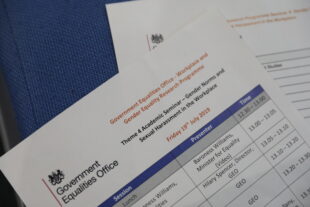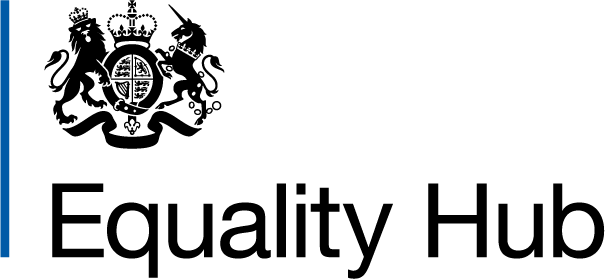
Earlier this month, we published our gender equality roadmap, setting out plans to tackle inequalities women face throughout their lifetimes, from school to retirement.
A key part of the roadmap was deepening our understanding around the root causes of gender stereotypes and social norms which, if unchecked, can sometimes contribute to a working environment within which violence and sexual harassment can occur.
To make sure the current workplace sexual harassment legislation is working, we have launched a consultation looking at this question. Later this year we will also run a national survey to help us better understand the issue as a whole, so that we can better tackle it.
To help employers tackle bullying, harassment and discrimination and create workplaces where everyone can reach their potential, we brought together over 30 of the UK’s leading academics and policy makers to explore the issue.
Together, we looked at possible actions employers could take to address gender stereotypes and end sexual harassment in the workplace.
We heard from, Professor Louise Mullany (University of Nottingham), Dr Afroditi Pina (University of Kent), and Dr Helen Mott (Sexual Harassment Prevention Specialist).
For Professor Mullany, it was critical that we pay close attention to the language we're using in our recruitment processes, "We need to transform traditional recruitment and reward processes to identify hidden barriers. We need to look not just at the language in our applications, but the language around the entire process."
For Dr Pina, it's only once we understand the underlying motivations of perpetrators, and the ways in which they seek to justify their behaviour, as well as victim-specific factors (e.g. coping mechanisms, risk of retaliation, efficacy) and organisational factors (e.g. climate, clear procedures and independent reporting bodies) that employers can really start to tackle the issue.
Meanwhile, Dr Mott looked at overcoming resistance to tackling sexual harassment, urging employers to look beyond traditional box ticking training and provide proportionate responses to the problem.
The seminar forms part of the Government Equalities Office’s Workplace and Gender Equality (WAGE) programme. This is a £1.1 million programme aiming to conduct new research to help employers close their gender pay gaps. The programme works with over 300 leading academics and policymakers to:
- Gather the existing evidence
- Identify and fill research gaps
- Produce evidence-based tools
Earlier this year we published employer guidance on how to improve their family friendly policies and how to support women to progress. Stay tuned for our guidance by following us on LinkedIn and Twitter.
How can I get involved?
Academics: Get in touch with us through the WAGE Research Programme by emailing GEO.ResearchProgramme@geo.gov.uk
Employers: Download our various guides on how to identify and reduce your pay gap here:
- Actions to close the gap
- Four steps to developing a gender pay gap action plan
- Eight ways to understand your organisation’s gender pay gap
- Family Friendly Policies: actions for employers
- Women’s Progression: actions for employers

Recent Comments